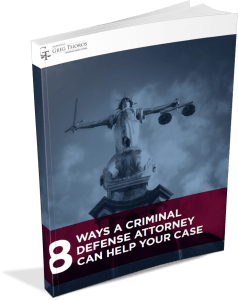
Whether it’s at a BBQ, a bar or at the big game, it’s no secret that many Texans enjoy alcoholic beverages when they’re having a good time. Although there is nothing wrong with having a few drinks from time to time, if things get out of hand, there can be legal consequences. Being intoxicated in a public place is a good way to get a trip to the county jail and a criminal record. Some people might think that walking home from the bar is safer than driving while drunk but there can be criminal penalties for both of these actions.
For legal purposes, Texas laws don’t use the term “drunk“. Instead, they use the term intoxication to refer to a state of inebriation. In Chapter 49 of the Texas Penal Code, intoxication is the state of:
OR
This is a very important distinction. Just because a person doesn’t have a 0.08 BAC does not excuse them from a public intoxication arrest. If a person is stumbling, slurring their speech and acting aggressively, a police officer may determine that that person is intoxicated and can place them under arrest.
In order to be arrested and charged with public intoxication, a person must be in a public place and be intoxicated to the degree that they are a danger to themselves or others.
Under the law, a bar is considered a public place. Virtually any location other than a private residence may be considered a public place.
For example, John has four drinks in a bar and then decides to walk home. Along the way, he is stopped by a police officer. The officer notices that John is swaying, has bloodshot eyes and is speaking in a loud, aggressive tone. The officer believes that John may stumble into the road, fall down or get aggressive with another person. The officer may place John under arrest for public intoxication.
A conviction for public intoxication in Texas is a Class C misdemeanor. This crime can be punished by:
It’s possible to fight public intoxication in court with the right kind of legal defense. For example, it’s a valid legal defense to claim that the alcohol or drugs that caused the intoxication were administered by a medical profession for treatment purposes in a clinical setting.
A defense lawyer may try to argue that their client did not meet the legal definition for intoxication, they may be able to avoid a conviction. If a blood alcohol test shows that the arrested individual had a blood alcohol concentration that was below the legal limit of 0.08, they may be able to avoid a conviction. Also, a lawyer could use witness statements and video footage to argue that the defendant was not actually a danger to themselves or others. If this kind of evidence can show that the defendant was not behaving in a dangerous way as claimed by the arresting officer, the charges may be dropped entirely.
Hiring a defense attorney is the best strategy after an arrest for public intoxication in Texas. With enough evidence and strong arguments, the defense attorney may be able to help their client avoid a conviction or plead to a lesser offense to avoid any consequences.
Have you been charged with public intoxication? A tough, experienced attorney, like Greg Tsioros, can help protect your legal rights. Contact his office today at (832) 752-5972.
Comments are closed.

Curious how a skilled attorney can help your case? Find out more with our new ebook.